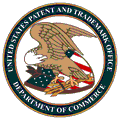 |
| United States Patent and Trademark Office seal (Photo credit: Wikipedia) |
JustBeenPaid! (JBP) and its related programs operate in accordance with United States Patent 6,578,010 (now public domain)However, if you look up the patent http://www.google.com/patents/US6578010 you will find it's actually about having a single computer system managing multiple HYIP-type funds without co-mingling, and allow each group manage their own membership, rules, contributions, cash outs, accruals, and so on.
It is basically a well designed HYIP script that can handle multiple HYIP funds. (HYIP is just a fancy name for Internet Ponzi scheme)
And there is NO PROOF ANYWHERE that this patent is now public domain. It was issued in 2003, so it could not have expired yet.
So why would an Internet Ponzi scheme, already under investigation in Italy, claim to be somehow associated with the USPTO?
It is using the "appeal to authority" fallacy, by "implying" some sort of legal sanction by the US government, when it is nothing of the sort.
Appeal to government authority is a common claim by various illegal schemes trying to "appear" legal and impress its members, who are not skeptical enough. If they were, they would have seen through the above easily. Where is the license agreement that they are "using" this patent? When they claimed the patent is now 'public domain', where is the proof of that, as patent term is 20 years?
The illegal "gifting circle" (another Pyramid / Ponzi variant) often claims to be legitimate by citing an IRS code that allows people to gift money to another person. However, the IRS code in no way condones ponzi scheme. That was a deliberate misinterpretation of the law.
A different scam, TVI Express, had previously cited a completely bogus definition of pyramid scheme, and claimed it was from the WFDSA (direct selling association) when a simple Internet check revealed it to be completely bogus.
Beware of "appeal to false authority", a variant of "Appeal to Authority" fallacy. Sometimes, the authority does not even exist, or deliberately falsified!






No comments:
Post a Comment